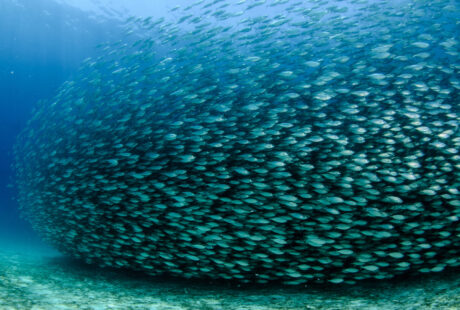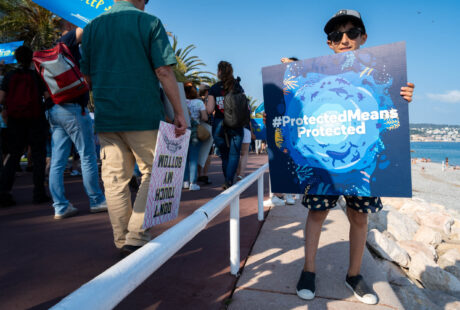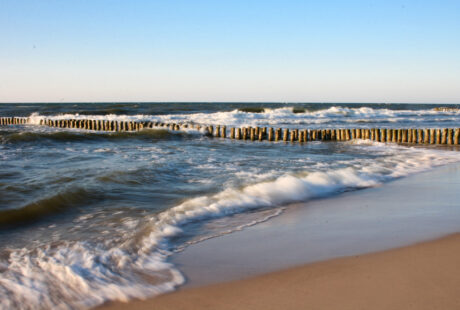European Parliament endorses controversial reports, undermining the credibility of its environmental ambition but backs the Commission on the urgent need to protect sensitive species from fishing nets
Strasbourg – 18 January 2024 – Seas At Risk expresses its deep concern about today’s endorsement by the European Parliament of two reports (1), as they mark a missed opportunity for the European Parliament to lead the way pushing for a just transition to sustainable fisheries. The reports, which are related to the European Commission’s fisheries package adopted in February 2023 (2), echo misleading arguments – previously used against the EU Green Deal and the EU Nature Restoration Law – that have been repeatedly debunked (3).
“It is a shame that parliamentarians turn to misleading claims to dismiss important environmental policies” said Remi Cossetti, Fisheries Policy Officer at Seas At Risk, adding: “This unacceptable strategy is a calculated effort to aggressively push regressive narratives and unjustly criticize the EU in an attempt to manipulate public opinion ahead of the upcoming European Parliament elections. Such tactics not only undermine the democratic process but also demonstrate a lack of integrity and respect for informed decision-making.”
In the report on the State of Play of the implementation of the Common Fisheries Policy, the European Parliament fails to recognise that the overfishing challenge in Europe is not intrinsically linked to the effectiveness of the law but, rather, arises from Ministers’ lack of political will to set sustainable fishing quotas and their lack of commitment to use the tools already at their disposal (4). While some political groups call for a reopening of the legislation, the focus should rather be on its implementation.
The report on the Marine Action Plan includes several detrimental considerations that undermine its quality. By labeling bottom trawling as a ‘sustainable’ fishing technique, the report conflicts with established scientific evidence which highlight its detrimental impacts (5). Moreover, the report overlooks the concept of a just transition towards low-impact fisheries and fails to address the need for Member States to plan the transition of the fisheries sector and phase out the most destructive fishing practices.
On a positive note, the Parliament backed the European Commission on stressing the importance of truly protecting sensitive species from fishing nets, adopting measures which include closing fisheries for temporary periods of time in line with scientific advice.
Bruno Nicostrate, Senior Fisheries Policy Officer At Seas At Risk said: “Today’s call by the European Parliament to drastically reduce the mortality of dolphins and other marine animals trapped in fishing nets, represents a breakthrough to a longstanding impasse. National governments must now act to prevent further incidental catches”.
ENDS
NOTES TO EDITORS
- Report on the state of play in the implementation of the Common Fisheries Policy and report on the Marine Action Plan Protecting and restoring marine ecosystems.
- In February 2023 the European Commission published the fisheries package which included a Communication on the Common Fisheries Today and Tomorrow: a Fisheries and Oceans Pact towards sustainable, science-based, innovative and inclusive fisheries management and the Action Plan: Protecting and restoring marine ecosystems for sustainable and resilient fisheries. Read Seas At Risk’s press release published as a reaction to the fisheries package in February 2023.
- Amongst others, the argument of food security is mentioned in both reports. As outlined by the Commission’s Communication on Global food security and supporting EU farmers and consumers, “food availability is currently not at stake in the EU”. The “Food Security” argument has been used fallaciously by some political groups to undermine efforts towards a just and sustainable transition of our food systems, on numerous key files in recent months.
- The Common Fisheries Policy regulation already provides Member States with a number of tools to mitigate the impact of fisheries on the environment and to promote the just transition to low impact fisheries, such as the regionalisation process with the Joint Recommendation procedure (Article 11) or the allocation of fishing opportunities (Article 17).
- Bottom-contacting gear is amongst the most unselective and destructive fishing gears. The method involves dragging heavy weighted nets across the sea floor, indiscriminately catching all types of living creatures and habitats in their path. Bottom trawling can strip up to 41% of invertebrate life from the sea-bed, and is responsible for more than 90% of incidental catches of sensitive species in the EU.
Posted on: 18 January 2024



